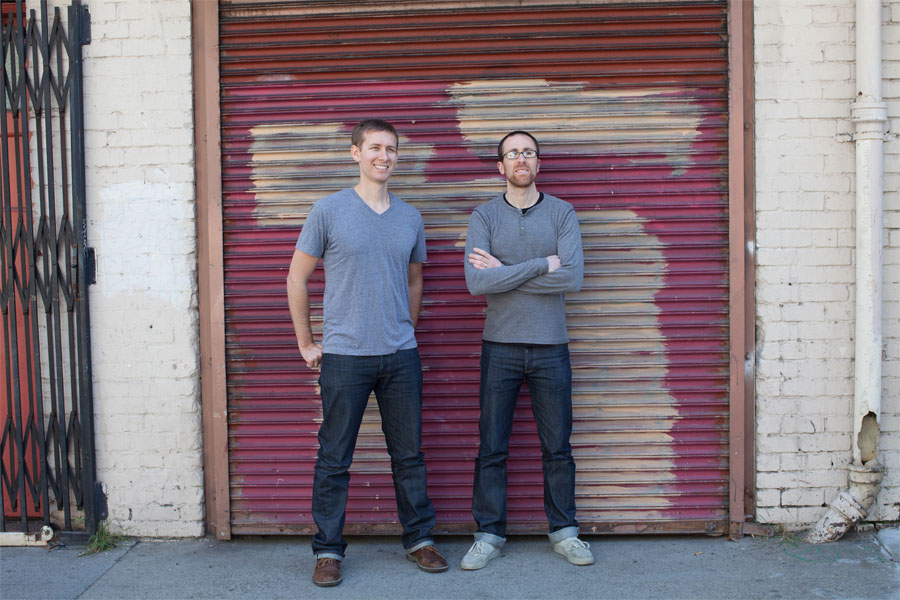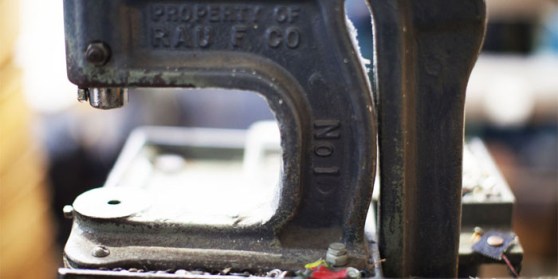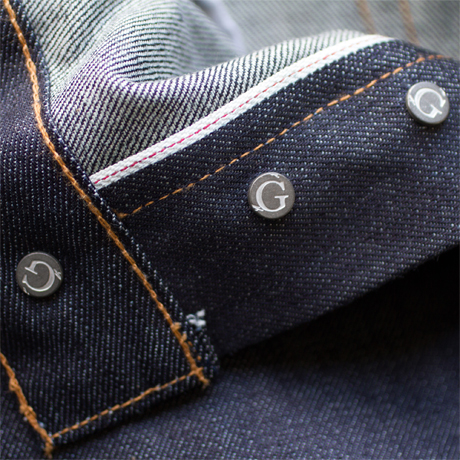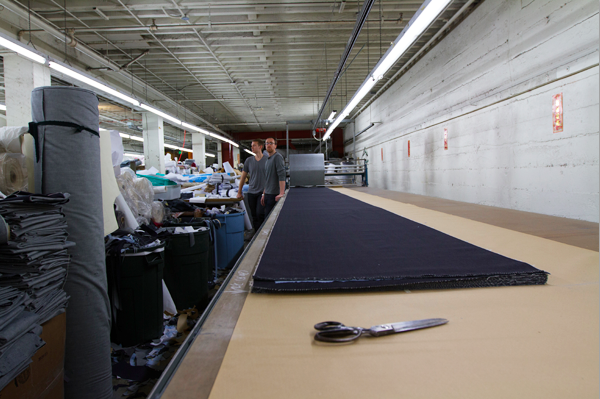 Steve Jobs wore the same outfit of a black turtleneck, jeans, and sneakers every day. He preferred to own a hundred versions of one perfect product and commissioned designer Issey Miyake to make this a reality.
Steve Jobs wore the same outfit of a black turtleneck, jeans, and sneakers every day. He preferred to own a hundred versions of one perfect product and commissioned designer Issey Miyake to make this a reality.
Not everybody has a designer on call to craft their wardrobe staples, but a startup called Gustin is redefining the way menswear is designed, created, and sold. Today, the company launched a fully crowdsourced, crowdfunded premium menswear brand and accompanying platform, which sets up a new model for the fashion world.
“We are turning the fashion industry on its head and breaking all the rules,” said founder Josh Gustin during an interview. “We are offering the highest-quality product, crowdsourced, and delivered at wholesale prices. Our goal is to create the perfect pair of jeans and create a super efficient collection that responds directly to what people want. The value proposition is huge, but the community is even bigger. No brand has ever tried this before on this level, and thus no other brand has the flexibility we do. When industry people started getting scared and defensive, we knew we were on to something.”
I met with Gustin and his cofounder Stephen Powell for a tour of the San Francisco production facility, which is tucked down a side road in the heart of downtown. The room was filled with stacks of denim, pockets, zippers, and thread, and the constant din of sewing machines. Unlike many clothing brands, which outsource their production overseas, Gustin and Powell’s office space is across the street and they regularly stop by to ensure that the work is up to their high standards. During the interview, they told me about the company’s background, vision, and how it came to be the largest fashion Kickstarter of all time.
Gustin entered the fashion world while attending graduate school at University of California Berkeley. He realized he’d rather pursue his fashion dreams than work in a bank. He spent a summer learning everything he could about denim and built a premium line of men’s jeans that sold in high-end boutiques. He grew frustrated with the traditional process of designing, manufacturing, convincing boutiques to sell his clothing, and then hoping consumers bought it.
Together, Gustin and Powell launched a Kickstarter campaign to back the production of the next line. They posted one style of jeans, which sold out and surpassed its $20,000 goal in less than 24 hours. To keep up with demand, the duo took a whirlwind, overnight road trip to LA, where they scooped up all the denim that caught their eye. They added more and more fabrics to the selection on their Kickstarter page, and the campaign ultimately closed at $450,000, with orders for 19 different styles.
“Clearly, we have struck a chord with people who want boutique-quality clothing at a reasonable price point, said Powell during the interview. “But Kickstarter is not a platform for sales, so we realized if this model was going to work, we would need our own platform. A lot of guys say that once they get these jeans, they never want to order anything else again. Denim is just the beginning.”
 Fashion production requires a lot of guesswork. Designers and retailers have to guess what consumers will like and how many pieces of each item they are likely to buy. It is not cost-effective for brands to produce limited edition lines, and garments often sell out, or worse, don’t sell at all and gather dust on retail shelves. Gustin’s approach eliminates all the guesswork by only producing items that consumers have already backed.
Fashion production requires a lot of guesswork. Designers and retailers have to guess what consumers will like and how many pieces of each item they are likely to buy. It is not cost-effective for brands to produce limited edition lines, and garments often sell out, or worse, don’t sell at all and gather dust on retail shelves. Gustin’s approach eliminates all the guesswork by only producing items that consumers have already backed.
“We can move so much quicker than other brands,” Powell said. We never sell out of any size or any cut because everything is custom-made. If 200 people say they want belts, we can turn that around in a day. We just ask ‘how can we make the best belt possible?’ and however much that comes out to be is how much it costs. It is still 60 percent less than other brands, and we don’t have to cut corners. It also means we can run just five pairs of a certain style if we want, without worrying about hitting a minimum.”
This platform not only cuts inefficiencies out of the manufacturing process, but it is built on a direct pipeline to consumer desires and an active level of customer engagement that other brands lust over and spend significant amounts of money to tap into. Programmer Paul Graham is known for saying “make something people want,” and Gustin’s model does exactly that. Transparency, authenticity, and quality are central to the fabric of the company.
 “This is part of the same transition a lot of other industries have already been through with technology,” Gustin said. “It is a shift from power of the brand to the power of the consumer. We are laying bare the brand and saying ‘these are our beliefs, but it will be nothing unless people directly support us.’ Something about the creative element of fashion keeps brands on a pedestal and lets them keep distance from consumers. This model lets us still do the thing we love, which is never cut a corner and design everything we like, and if only a few get into production, that’s fine. Why design stuff if no one wants to wear it?
“This is part of the same transition a lot of other industries have already been through with technology,” Gustin said. “It is a shift from power of the brand to the power of the consumer. We are laying bare the brand and saying ‘these are our beliefs, but it will be nothing unless people directly support us.’ Something about the creative element of fashion keeps brands on a pedestal and lets them keep distance from consumers. This model lets us still do the thing we love, which is never cut a corner and design everything we like, and if only a few get into production, that’s fine. Why design stuff if no one wants to wear it?
Gustin is building more than a great line of jeans. It is a company leveraging the Internet’s power of communication, the momentum of crowdsourcing, and a growing national interest in products that are high-quality and have a story behind them. The jeans themselves are an example of old-fashioned craftsmanship. Sewing machines are the most advanced piece of technology in the factory and every step of the process is human-powered. The real innovation lays in Gustin’s fresh approach to building a consumer goods company and redefining the production process in a leaner, more direct, more responsive way.
If Steve Jobs was still around, he could order 100 pairs of Gustins just for himself. Although he was dedicated to another little San Francisco denim company called Levis.
Photo Credit: Gustin
VentureBeat's mission is to be a digital town square for technical decision-makers to gain knowledge about transformative enterprise technology and transact. Learn More

